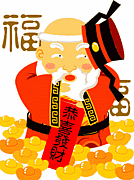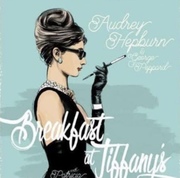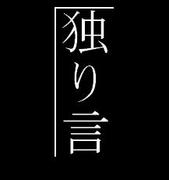�����ٶ�����ʸ���ߥ�ν�节Spring Festival
Spring Festival
The Spring Festival is the most important festival for the Chinese people and is when all family members get together, just like Christmas in the West. All people living away from home go back, becoming the busiest time for transportation systems of about half a month from the Spring Festival. Airports, railway stations and long-distance bus stations are crowded with home returnees.
The Spring Festival falls on the 1st day of the 1st lunar month, often one month later than the Gregorian calendar. It originated in the Shang Dynasty (c. 1600 BC-c. 1100 BC) from the people's sacrifice to gods and ancestors at the end of an old year and the beginning of a new one.
Strictly speaking, the Spring Festival starts every year in the early days of the 12th lunar month and will last till the mid 1st lunar month of the next year. Of them, the most important days are Spring Festival Eve and the first three days. The Chinese government now stipulates people have seven days off for the Chinese Lunar New Year.
Many customs accompany the Spring Festival. Some are still followed today, but others have weakened.
On the 8th day of the 12th lunar month, many families make laba porridge, a delicious kind of porridge made with glutinous rice, millet, seeds of Job's tears, jujube berries, lotus seeds, beans, longan and gingko.
The 23rd day of the 12th lunar month is called Preliminary Eve. At this time, people offer sacrifice to the kitchen god. Now however, most families make delicious food to enjoy themselves.
After the Preliminary Eve, people begin preparing for the coming New Year. This is called "Seeing the New Year in".
Store owners are busy then as everybody goes out to purchase necessities for the New Year. Materials not only include edible oil, rice, flour, chicken, duck, fish and meat, but also fruit, candies and kinds of nuts. What's more, various decorations, new clothes and shoes for the children as well as gifts for the elderly, friends and relatives, are all on the list of purchasing.
Before the New Year comes, the people completely clean the indoors and outdoors of their homes as well as their clothes, bedclothes and all their utensils.
Then people begin decorating their clean rooms featuring an atmosphere of rejoicing and festivity. All the door panels will be pasted with Spring Festival couplets, highlighting Chinese calligraphy with black characters on red paper. The content varies from house owners' wishes for a bright future to good luck for the New Year. Also, pictures of the god of doors and wealth will be posted on front doors to ward off evil spirits and welcome peace and abundance.
The Chinese character "fu" (meaning blessing or happiness) is a must. The character put on paper can be pasted normally or upside down, for in Chinese the "reversed fu" is homophonic with "fu comes", both being pronounced as "fudaole." What's more, two big red lanterns can be raised on both sides of the front door. Red paper-cuttings can be seen on window glass and brightly colored New Year paintings with auspicious meanings may be put on the wall.
People attach great importance to Spring Festival Eve. At that time, all family members eat dinner together. The meal is more luxurious than usual. Dishes such as chicken, fish and bean curd cannot be excluded, for in Chinese, their pronunciations, respectively "ji", "yu" and "doufu," mean auspiciousness, abundance and richness. After the dinner, the whole family will sit together, chatting and watching TV. In recent years, the Spring Festival party broadcast on China Central Television Station (CCTV) is essential entertainment for the Chinese both at home and abroad. According to custom, each family will stay up to see the New Year in.
Waking up on New Year, everybody dresses up. First they extend greetings to their parents. Then each child will get money as a New Year gift, wrapped up in red paper. People in northern China will eat jiaozi, or dumplings, for breakfast, as they think "jiaozi" in sound means "bidding farewell to the old and ushering in the new". Also, the shape of the dumpling is like gold ingot from ancient China. So people eat them and wish for money and treasure.
Southern Chinese eat niangao (New Year cake made of glutinous rice flour) on this occasion, because as a homophone, niangao means "higher and higher, one year after another." The first five days after the Spring Festival are a good time for relatives, friends, and classmates as well as colleagues to exchange greetings, gifts and chat leisurely.
Burning fireworks was once the most typical custom on the Spring Festival. People thought the spluttering sound could help drive away evil spirits. However, such an activity was completely or partially forbidden in big cities once the government took security, noise and pollution factors into consideration. As a replacement, some buy tapes with firecracker sounds to listen to, some break little balloons to get the sound too, while others buy firecracker handicrafts to hang in the living room.
The lively atmosphere not only fills every household, but permeates to streets and lanes. A series of activities such as lion dancing, dragon lantern dancing, lantern festivals and temple fairs will be held for days. The Spring Festival then comes to an end when the Lantern Festival is finished.
China has 56 ethnic groups. Minorities celebrate their Spring Festival almost the same day as the Han people, and they have different customs.
��节����农历�����졤����阴历ǯ��¯�Ρ�过ǯ�ɡ�这�����̱间��δ�š���热闹Ū��Ф传统节������节Ū历����ͪ�ס��൯��в�־�时��ǯ头岁��Ū�����ij�动���ľȲ��农历��������žθ�������ä������������ö����¯��ǯ��졤��λ̱��时�������Ѹ�历����历Ū��������为��ö����农历Ū����������节��
������节��λ����̣���ŷ������临������复苏���ڹ���������轮��种����获��节����开�ϡ���们刚刚��过��ŷ������������Ū̡̡���ߡ��ὢ盼˾����Ȳ�开Ū���ҡ�����������Ƿ际��������满���载��载���Ϸ���这Ф节������ɴǯ�衤��们��ǯ¯庆�˳�动变��异��丰��¿�̡�每ǯк农历腊����������ǯ������̱间��这��时间�����ȷ����ɡ��鶫��扫尘���ɡ��߽�节��扫尘搞卫����������̱��ͭŪ传统习惯��
�������������Ȳ�户户��备ǯ货��节����ŷ��������们��开��˻в��购ʪ�ʡ�ǯ货���鸡鸭鱼���������酱��������货����饵���ʡ�����买����还��备�캳过ǯ时��亲访ͧ时赠��Ū���ʡ����ػ���ź�ֿ��ῷ˹����备过ǯ时����
��节���߽���Ū��门��Ǵ贴红纸����Ū��ǯ��语���齢����红纸����Ū��联����Τ张贴����鲜艳���յȾ�Ūǯ�衤��灵�깪Ū��̼们�����丽Ū�ٲ�贴����户�塤门������红��笼��贴ʡ����财����门��������ʡ��还�İ���贴��ϩ�Ͱ�ǰʡ��λ���齢��ʡ����λ����ͭ这����动������为节����ź够Ū��庆���䡣
������节Ū另��̾�ζ�过ǯ����过��Ū传说�桤ǯ����种为��们带��ԯ运��Ū�۾���Ū动ʪ��ǯ���衣树�����á�ɴ��������ǯ��过����ʪ��长��鲜�����ϡ�ǯǡ����ǽ过��呢����������轰 ��в��ͭλdz����Ū习¯��这¶实����烘��热闹场��Ū����种������
������节��Ф欢乐����Ū节��������亲��团��Ū���ҡ�离�Ⱥ߳�Ū�ػҺ�过��节时���ײ��欢�ܡ�过ǯŪ�����롤������ǯŪ腊����롤�鶫��ͼ������团圆�롤��这�������Ū时������岁���ǽ���Ūǯ¯��动Ƿ�졤��ͼ晚�塤����Ϸ���쵯��ǯ��岁��欢����饮������ŷ伦Ƿ乐�������϶�߽�ͼͭ��饺��Ū习¯��饺��Ū��ˡ�������̡��»������硨饺��Ū饺�¸�谐�������¸�ͭ����Ƿ�ա����蹹岁���Ƿ�ա�������ͭ过ǯ��ǯ糕Ū习惯��żżŪǴǴŪǯ糕����������ǯ����ż̪̪��步步�⡣�������鸡��响����������ǯŪ钟����过����������齐鸣��响�������������Ȳȴ������Ρ���Ū��ǯ开��λ���˽�Ϸ��������节����������给��²��Ū长����ǯ�˼���节��还ͭ给ѹƸ压岁钱����团ǯ饭��������开����亲�̴���ͧ�������ǯ��ƻ贺��ʡ��说����贺�������发财�����过ǯ����话����������动��
����节��Ū热��������仅�ΰ�߳Ʋȳ�户���齼满����Ū�糹�������캳����Ū���Ծ�还ͭ��狮�ҡ�耍龙������ҲС���ֻԡ�逛庙����习¯��这��间����满�롤���满����热闹���ޡ���������ľ��闹���������节过������节�ͻ�����结«λ��
������节��汉²�ǽ���Ū节����â��满���ظš������ԡ��⻳����ů��������达��尔��侗����������Ф����̱²��ͭ过��节Ū习¯������过节Ū������ͭ����Ū̱²�ÿ�����蕴̣��穷��
The Spring Festival is the most important festival for the Chinese people and is when all family members get together, just like Christmas in the West. All people living away from home go back, becoming the busiest time for transportation systems of about half a month from the Spring Festival. Airports, railway stations and long-distance bus stations are crowded with home returnees.
The Spring Festival falls on the 1st day of the 1st lunar month, often one month later than the Gregorian calendar. It originated in the Shang Dynasty (c. 1600 BC-c. 1100 BC) from the people's sacrifice to gods and ancestors at the end of an old year and the beginning of a new one.
Strictly speaking, the Spring Festival starts every year in the early days of the 12th lunar month and will last till the mid 1st lunar month of the next year. Of them, the most important days are Spring Festival Eve and the first three days. The Chinese government now stipulates people have seven days off for the Chinese Lunar New Year.
Many customs accompany the Spring Festival. Some are still followed today, but others have weakened.
On the 8th day of the 12th lunar month, many families make laba porridge, a delicious kind of porridge made with glutinous rice, millet, seeds of Job's tears, jujube berries, lotus seeds, beans, longan and gingko.
The 23rd day of the 12th lunar month is called Preliminary Eve. At this time, people offer sacrifice to the kitchen god. Now however, most families make delicious food to enjoy themselves.
After the Preliminary Eve, people begin preparing for the coming New Year. This is called "Seeing the New Year in".
Store owners are busy then as everybody goes out to purchase necessities for the New Year. Materials not only include edible oil, rice, flour, chicken, duck, fish and meat, but also fruit, candies and kinds of nuts. What's more, various decorations, new clothes and shoes for the children as well as gifts for the elderly, friends and relatives, are all on the list of purchasing.
Before the New Year comes, the people completely clean the indoors and outdoors of their homes as well as their clothes, bedclothes and all their utensils.
Then people begin decorating their clean rooms featuring an atmosphere of rejoicing and festivity. All the door panels will be pasted with Spring Festival couplets, highlighting Chinese calligraphy with black characters on red paper. The content varies from house owners' wishes for a bright future to good luck for the New Year. Also, pictures of the god of doors and wealth will be posted on front doors to ward off evil spirits and welcome peace and abundance.
The Chinese character "fu" (meaning blessing or happiness) is a must. The character put on paper can be pasted normally or upside down, for in Chinese the "reversed fu" is homophonic with "fu comes", both being pronounced as "fudaole." What's more, two big red lanterns can be raised on both sides of the front door. Red paper-cuttings can be seen on window glass and brightly colored New Year paintings with auspicious meanings may be put on the wall.
People attach great importance to Spring Festival Eve. At that time, all family members eat dinner together. The meal is more luxurious than usual. Dishes such as chicken, fish and bean curd cannot be excluded, for in Chinese, their pronunciations, respectively "ji", "yu" and "doufu," mean auspiciousness, abundance and richness. After the dinner, the whole family will sit together, chatting and watching TV. In recent years, the Spring Festival party broadcast on China Central Television Station (CCTV) is essential entertainment for the Chinese both at home and abroad. According to custom, each family will stay up to see the New Year in.
Waking up on New Year, everybody dresses up. First they extend greetings to their parents. Then each child will get money as a New Year gift, wrapped up in red paper. People in northern China will eat jiaozi, or dumplings, for breakfast, as they think "jiaozi" in sound means "bidding farewell to the old and ushering in the new". Also, the shape of the dumpling is like gold ingot from ancient China. So people eat them and wish for money and treasure.
Southern Chinese eat niangao (New Year cake made of glutinous rice flour) on this occasion, because as a homophone, niangao means "higher and higher, one year after another." The first five days after the Spring Festival are a good time for relatives, friends, and classmates as well as colleagues to exchange greetings, gifts and chat leisurely.
Burning fireworks was once the most typical custom on the Spring Festival. People thought the spluttering sound could help drive away evil spirits. However, such an activity was completely or partially forbidden in big cities once the government took security, noise and pollution factors into consideration. As a replacement, some buy tapes with firecracker sounds to listen to, some break little balloons to get the sound too, while others buy firecracker handicrafts to hang in the living room.
The lively atmosphere not only fills every household, but permeates to streets and lanes. A series of activities such as lion dancing, dragon lantern dancing, lantern festivals and temple fairs will be held for days. The Spring Festival then comes to an end when the Lantern Festival is finished.
China has 56 ethnic groups. Minorities celebrate their Spring Festival almost the same day as the Han people, and they have different customs.
��节����农历�����졤����阴历ǯ��¯�Ρ�过ǯ�ɡ�这�����̱间��δ�š���热闹Ū��Ф传统节������节Ū历����ͪ�ס��൯��в�־�时��ǯ头岁��Ū�����ij�动���ľȲ��农历��������žθ�������ä������������ö����¯��ǯ��졤��λ̱��时�������Ѹ�历����历Ū��������为��ö����农历Ū����������节��
������节��λ����̣���ŷ������临������复苏���ڹ���������轮��种����获��节����开�ϡ���们刚刚��过��ŷ������������Ū̡̡���ߡ��ὢ盼˾����Ȳ�开Ū���ҡ�����������Ƿ际��������满���载��载���Ϸ���这Ф节������ɴǯ�衤��们��ǯ¯庆�˳�动变��异��丰��¿�̡�每ǯк农历腊����������ǯ������̱间��这��时间�����ȷ����ɡ��鶫��扫尘���ɡ��߽�节��扫尘搞卫����������̱��ͭŪ传统习惯��
�������������Ȳ�户户��备ǯ货��节����ŷ��������们��开��˻в��购ʪ�ʡ�ǯ货���鸡鸭鱼���������酱��������货����饵���ʡ�����买����还��备�캳过ǯ时��亲访ͧ时赠��Ū���ʡ����ػ���ź�ֿ��ῷ˹����备过ǯ时����
��节���߽���Ū��门��Ǵ贴红纸����Ū��ǯ��语���齢����红纸����Ū��联����Τ张贴����鲜艳���յȾ�Ūǯ�衤��灵�깪Ū��̼们�����丽Ū�ٲ�贴����户�塤门������红��笼��贴ʡ����财����门��������ʡ��还�İ���贴��ϩ�Ͱ�ǰʡ��λ���齢��ʡ����λ����ͭ这����动������为节����ź够Ū��庆���䡣
������节Ū另��̾�ζ�过ǯ����过��Ū传说�桤ǯ����种为��们带��ԯ运��Ū�۾���Ū动ʪ��ǯ���衣树�����á�ɴ��������ǯ��过����ʪ��长��鲜�����ϡ�ǯǡ����ǽ过��呢����������轰 ��в��ͭλdz����Ū习¯��这¶实����烘��热闹场��Ū����种������
������节��Ф欢乐����Ū节��������亲��团��Ū���ҡ�离�Ⱥ߳�Ū�ػҺ�过��节时���ײ��欢�ܡ�过ǯŪ�����롤������ǯŪ腊����롤�鶫��ͼ������团圆�롤��这�������Ū时������岁���ǽ���Ūǯ¯��动Ƿ�졤��ͼ晚�塤����Ϸ���쵯��ǯ��岁��欢����饮������ŷ伦Ƿ乐�������϶�߽�ͼͭ��饺��Ū习¯��饺��Ū��ˡ�������̡��»������硨饺��Ū饺�¸�谐�������¸�ͭ����Ƿ�ա����蹹岁���Ƿ�ա�������ͭ过ǯ��ǯ糕Ū习惯��żżŪǴǴŪǯ糕����������ǯ����ż̪̪��步步�⡣�������鸡��响����������ǯŪ钟����过����������齐鸣��响�������������Ȳȴ������Ρ���Ū��ǯ开��λ���˽�Ϸ��������节����������给��²��Ū长����ǯ�˼���节��还ͭ给ѹƸ压岁钱����团ǯ饭��������开����亲�̴���ͧ�������ǯ��ƻ贺��ʡ��说����贺�������发财�����过ǯ����话����������动��
����节��Ū热��������仅�ΰ�߳Ʋȳ�户���齼满����Ū�糹�������캳����Ū���Ծ�还ͭ��狮�ҡ�耍龙������ҲС���ֻԡ�逛庙����习¯��这��间����满�롤���满����热闹���ޡ���������ľ��闹���������节过������节�ͻ�����结«λ��
������节��汉²�ǽ���Ū节����â��满���ظš������ԡ��⻳����ů��������达��尔��侗����������Ф����̱²��ͭ过��节Ū习¯������过节Ū������ͭ����Ū̱²�ÿ�����蕴̣��穷��
|
|
|
|
|
|
|
|
�����ٶ�����ʸ ��������
-
�ǿ��Υ��٥��
-
�ǿ��Υ�����
-
�ޤ����⤢��ޤ���
-
�����ٶ�����ʸ�Υ��С��Ϥ���ʥ��ߥ�˥ƥ��ˤ⻲�ä��Ƥ��ޤ�
�͵����ߥ�˥ƥ����
- 1��
- ��ޯ��ʽ��λҤ�����
- 90036��
- 2��
- ��ͤ�mixi�ڤ��ȥߥ���
- 6416��
- 3��
- �Ȥ��
- 9044��
























